Lukashenka’s secret inauguration stirs up social media
Secret ceremony generates controversy on Twitter
Lukashenka’s secret inauguration stirs up social media

Secret ceremony generates controversy on Twitter and Wikipedia

Alexander Lukashenka secretly inaugurated himself as President of Belarus for a sixth term on September 23, 2020, sparking massive discussions on social media. The inauguration ceremony, which took place in the Palace of Independence in the capital of Minsk, was neither announced in advance, nor was it broadcasted live on TV. The secret inauguration was followed by more mass street protests and new condemnation in the West. According to reports, Belarus police used water cannons and violence against the demonstrators.
Lukashenka’s claim to have won elections on 9 August, 2020 with 80% of the vote triggered huge protests in Belarus. A number of Western countries, including EU states and the U.S., have rejected the results of the election as illegitimate.
The DFRLab has been actively covering the protests in Belarus and disinformation around the topic.
Footages from secret ceremony surfaces on social media
On the morning of September 23, 2020, images and video footages of the unprecedented inauguration started surfacing on social media. Although there was no information provided through official Belarusian channels, limited video footage and images from the secret ceremony surfaced on social media through Belarusian media platforms and different Twitter users.
⚡️ Картэж Лукашэнкі праехаў каля Нацыянальнай бібліятэкі.
Відэа: motolkohelp pic.twitter.com/sdEmMmspyw
— Belsat TV (@Belsat_TV) September 23, 2020
#Belarus The blocked avenue in #Minsk and secret inauguration. So 80 percent pic.twitter.com/4oVEOodUZ6
— Hanna Liubakova (@HannaLiubakova) September 23, 2020
Вот так это было pic.twitter.com/RhfNekPGgN
— Чай з варэннем (@belteanews) September 23, 2020
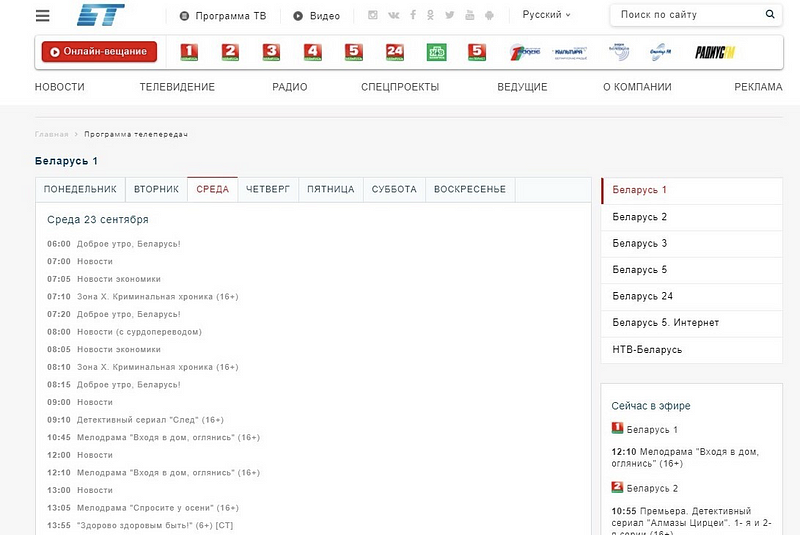
❗And now it's official. Lukashenko has been inaugurated as president in full secrecy. pic.twitter.com/EkcBLDTXkz
— NEXTA (@nexta_tv) September 23, 2020
Речь Александра Лукашенко на инаугурации pic.twitter.com/9NgaXkxMh9
— ЧТД (@Chtede) September 23, 2020
Social media analysis
A social media scan for the word “Лукашенко” (“Lukashenka” in Russian) together with “инаугурация” or “инаугурации” (both words translate as “inauguration” in two different declensions) through the social monitoring tool Meltwater Explore showed that on September 23, the covert ceremony was discussed actively on social media, with more than 21,000 mentions on Twitter, Facebook, blogs, news, forums and other platforms together. The most mentions of the words were detected on Twitter, with more than 16,000 mentions by over 7,000 unique accounts.
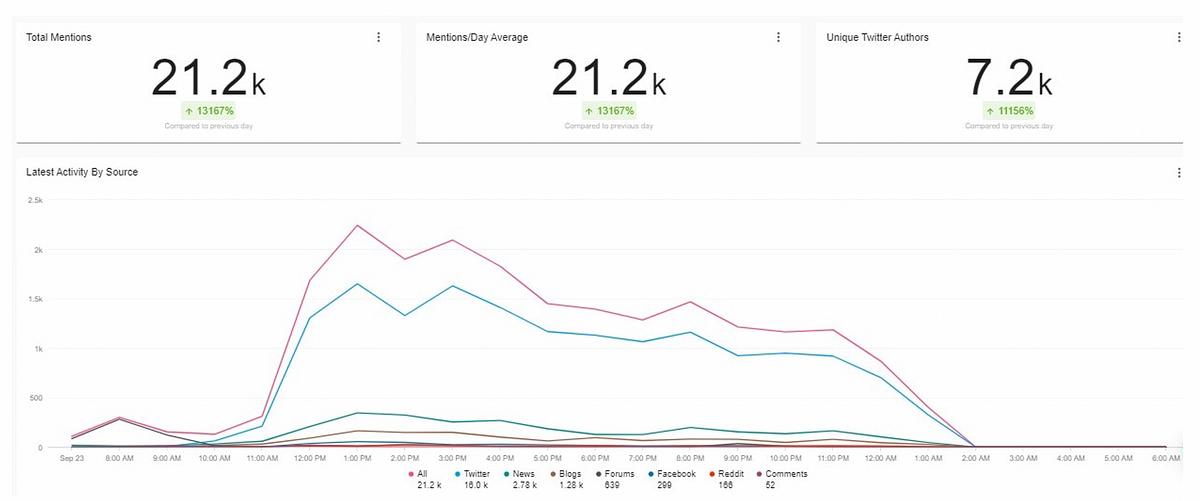
Russia, Ukraine, and Belarus were the top three locations of users utilizing these keywords, with Russia standing far out in front of the them.
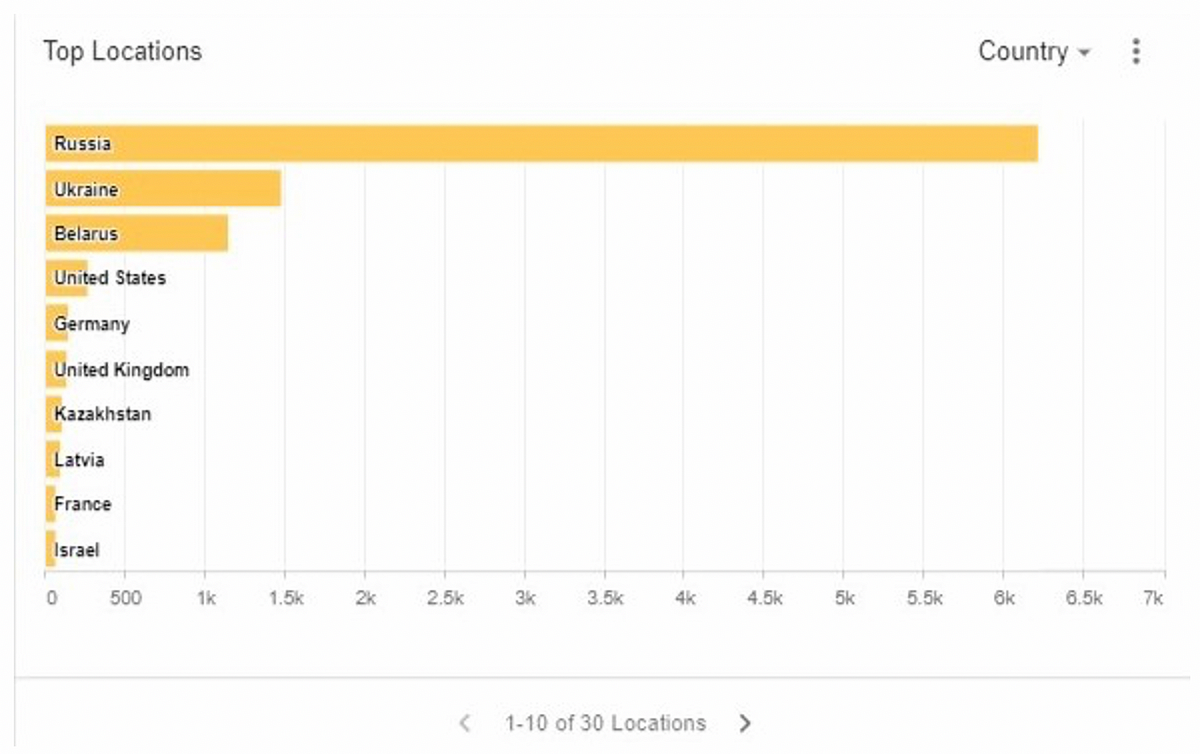
As Twitter was the most popular platform with the highest mentions of the words, Meltwater Explore showed that pro-Kremlin outlets Gazeta.ru, NTV.ru, and RT were among the list of the Twitter accounts with the largest audiences mentioning those keywords on September 23.
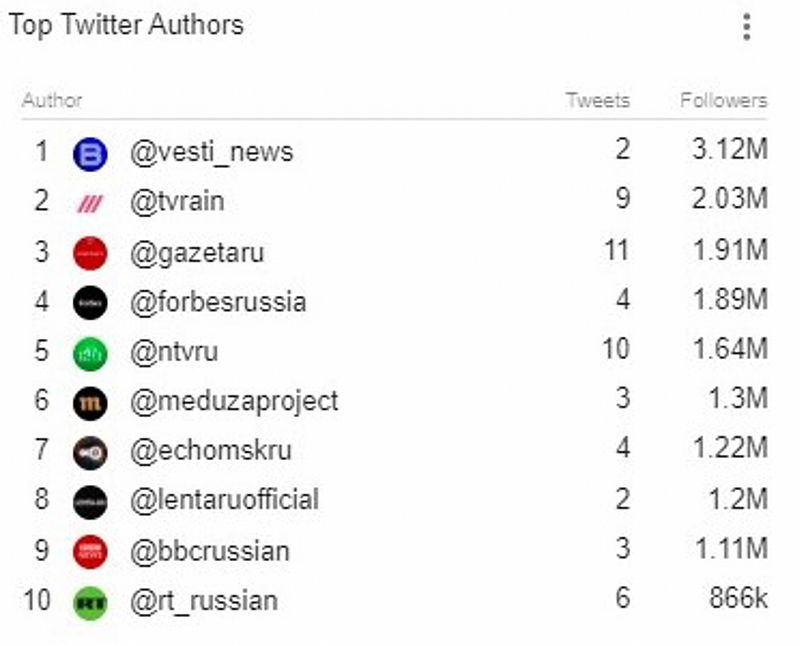
Ten largest Twitter accounts mentioning the words “Lukashenka” and “Inauguration” together on September 23, 2020. (Source: Eto Buziashvili via Meltwater Explore)
Wikipedia War
On September 23, following the news on Lukashenka’s secret inauguration, a secret war of words took place on Wikipedia. One of the website’s users edited the Wikipedia article “Самозванец”, which translates from Russian to English as “impostor,” and brings together famous people throughout history who have pretended to be somebody else, often through means of disguise. The user put Lukashenka’s name among the list of impostors. The page history shows that the initial editing on September 23 was made in a following way: “Alexander Lukashenka — declared himself President of Belarus in 2020.”
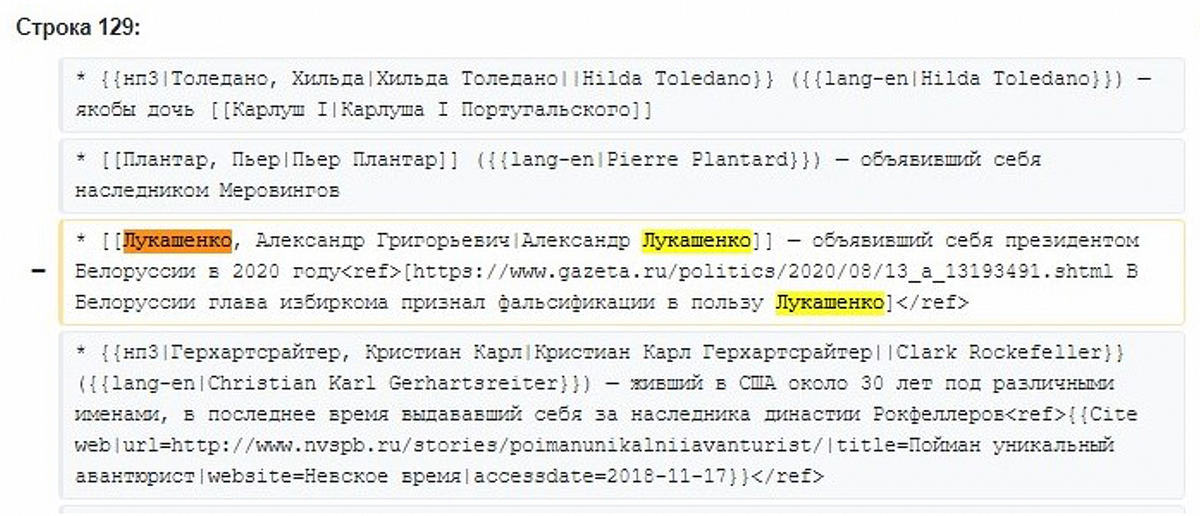
The Wikipedia page for “imposter” was edited several times over the course of September 23, with different users adding and removing the section about Lukashenka. The editing war was brought to an end by another Wikipedia editor who deactivated the editing feature of the article, indicating frequent vandalism as a reason.
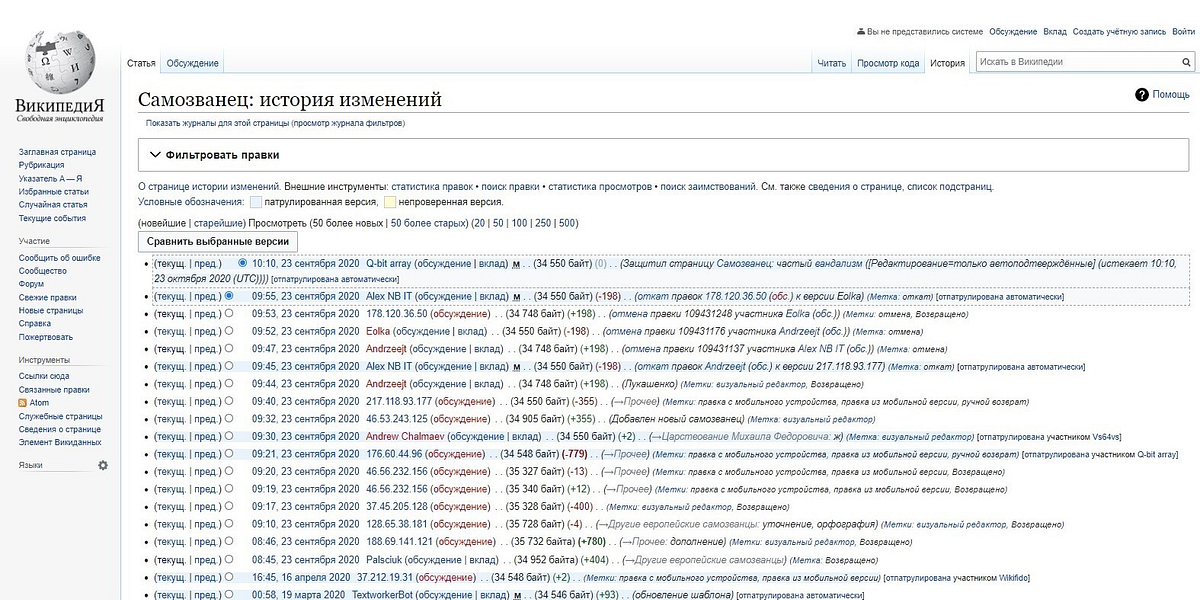
Eto Buziashvili is a Research Associate, Caucasus, with the Digital Forensic Research Lab and is based in Georgia.
Follow along for more in-depth analysis from our #DigitalSherlocks

